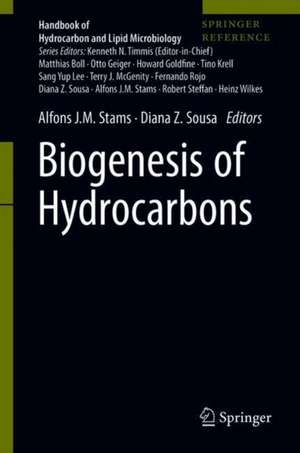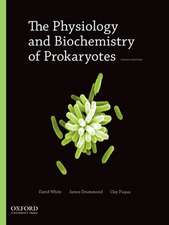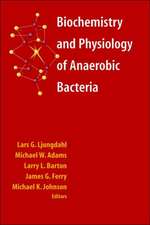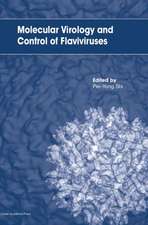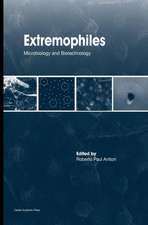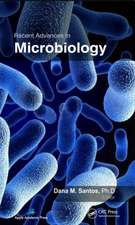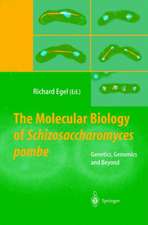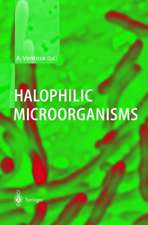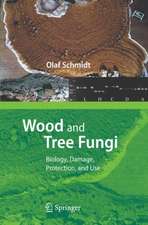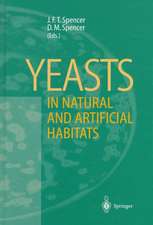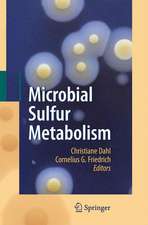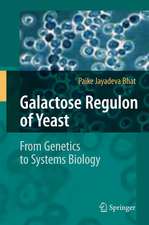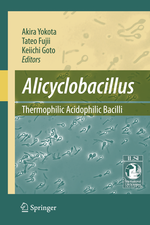Biogenesis of Hydrocarbons: Handbook of Hydrocarbon and Lipid Microbiology
Editat de Alfons J. M. Stams, Diana Z. Sousaen Limba Engleză Hardback – 14 aug 2019
The book covers the microbiological, environmental and biotechnological aspects of alkane production. Alkanes are important energy-rich compounds on earth. Microbial synthesis of methane and other alkanes is an essential part of the geochemical cycling of carbon and offers perspectives for our biobased economy. This book discusses different aspects of current knowledge of microbial alkane production. Chapters with state of the art information are written by renowned scientists in the field.
The chapters are organised into four themed parts:
1. Biochemistry of Biogenesis - Hydrocarbons
2. Taxonomy, Ecophysiology and Genomics of Biogenesis - Hydrocarbons
3. Biogenic Communities: Members, Functional Roles
4. Global Consequences of Methane Production
Preț: 2103.24 lei
Preț vechi: 2564.93 lei
-18% Nou
Puncte Express: 3155
Preț estimativ în valută:
402.44€ • 421.32$ • 333.00£
402.44€ • 421.32$ • 333.00£
Carte disponibilă
Livrare economică 17-31 martie
Preluare comenzi: 021 569.72.76
Specificații
ISBN-13: 9783319781075
ISBN-10: 3319781073
Pagini: 400
Ilustrații: XVI, 499 p. 66 illus., 45 illus. in color.
Dimensiuni: 155 x 235 mm
Greutate: 0.85 kg
Ediția:1st ed. 2019
Editura: Springer International Publishing
Colecția Springer
Seria Handbook of Hydrocarbon and Lipid Microbiology
Locul publicării:Cham, Switzerland
ISBN-10: 3319781073
Pagini: 400
Ilustrații: XVI, 499 p. 66 illus., 45 illus. in color.
Dimensiuni: 155 x 235 mm
Greutate: 0.85 kg
Ediția:1st ed. 2019
Editura: Springer International Publishing
Colecția Springer
Seria Handbook of Hydrocarbon and Lipid Microbiology
Locul publicării:Cham, Switzerland
Cuprins
Introduction to Microbial Hydrocarbon Production: Bioenergetics.- Diversity and Taxonomy of Methanogens.- Hydrogenotrophic Methanogenesis.- Ecophysiology of Acetoclastic Methanogens.- Methanogenesis from Carbon Monoxide.- Environmental Constraints that Limit Methanogenesis.- Methanogens: Syntrophic Metabolism.- Methanogenesis in Soils, Wetlands, and Peat.- Methanogenesis in the Digestive Tracts of Insects and Other Arthropods.- Methanogenesis at High Latitudes.- Methanogens and Methanogenesis in Hypersaline Environments.- Metagenomics of Methanogenic Communities in Rice Paddy Rhizosphere; the Importance of Methanocella.- Metagenomics of Methanogenic Communities in Anaerobic Digesters.- Anaerobic Digestion as Key Technology in the Bio-Based Economy.- Oxic Methane Cycling: New Evidence for Methane Formation in Oxic Lake Water.- Contribution of Methane Formation and Methane Oxidation to Methane Emission from Freshwater Systems.- Diversity and Taxonomy of Aliphatic Hydrocarbon Producers.- Alkane Biosynthesis in Bacteria.- Oil and Hydrocarbon-Producing Bacteria.-
Notă biografică
Prof. Alfons J.M. Stams is personal chair professor at Wageningen University & Research (Wageningen, The Netherlands) and visiting professor at the University of Minho (Braga, Portugal). He studied Molecular Sciences at the Agricultural University of Wageningen and received his Ph.D. in 1985 on the ecophysiology of sulfate-reducing bacteria at the University of Groningen. After a postdoc period, he became leader of the Microbial Physiology group of Wageningen University. His main research focus was the physiology and ecology of anaerobic microbial communities that play a crucial role in environmental biotechnological processes, such as wastewater treatment and soil and groundwater remediation. Main research areas included syntrophic communities of anaerobic bacteria and methanogenic archaea, sulfate- and sulfur-reducing bacteria, and bacteria that respire with organic and inorganic chlorine compounds. He has supervised more than 50 Ph.D. students and published more than 400articles in peerreviewed journals and books. He is editor of FEMS Microbial Ecology and of Applied and Environmental Microbiology. His teaching activities mainly concerned the physiology and biotechnological application of microorganisms.
Dr. Diana Z. Sousa is associate professor atWageningen University & Research (Wageningen, The Netherlands) and group leader of the Microbial Physiology group within the Laboratory of Microbiology of this university. She studied Biological Engineering at the University of Minho and obtained her Ph.D. from the same university in 2007. During her Ph.D., she specialized on the microbiology of the conversion of long-chain fatty acids (LCFA) to methane in anaerobic reactors and, inherently, on obligate syntrophic microorganisms. From 2007 to 2013, she worked as assistant professor in the Department of Biological Engineering at the University of Minho, and in 2013 she moved to the Laboratory of Microbiology at Wageningen University & Research. Her current interest lies in the study of the metabolic pathways, microbes, and (synthetic) microbial networks that convert one-carbon molecules such as carbon monoxide, carbon dioxide, methane, and methanol and their application to produce high-value chemical building blocks. Other topics researched by her group include syntrophy, methanogenesis, sulfur cycle, and, more recently, electromicrobiology. She has published over 60 articles and book chapters and has supervised 16 Ph.D. students (7 completed). She is active in several education and research groups, such as theWageningen Young Academy (since 2018), with a focus on the development and promotion of sciencesociety- policy nexus
Dr. Diana Z. Sousa is associate professor atWageningen University & Research (Wageningen, The Netherlands) and group leader of the Microbial Physiology group within the Laboratory of Microbiology of this university. She studied Biological Engineering at the University of Minho and obtained her Ph.D. from the same university in 2007. During her Ph.D., she specialized on the microbiology of the conversion of long-chain fatty acids (LCFA) to methane in anaerobic reactors and, inherently, on obligate syntrophic microorganisms. From 2007 to 2013, she worked as assistant professor in the Department of Biological Engineering at the University of Minho, and in 2013 she moved to the Laboratory of Microbiology at Wageningen University & Research. Her current interest lies in the study of the metabolic pathways, microbes, and (synthetic) microbial networks that convert one-carbon molecules such as carbon monoxide, carbon dioxide, methane, and methanol and their application to produce high-value chemical building blocks. Other topics researched by her group include syntrophy, methanogenesis, sulfur cycle, and, more recently, electromicrobiology. She has published over 60 articles and book chapters and has supervised 16 Ph.D. students (7 completed). She is active in several education and research groups, such as theWageningen Young Academy (since 2018), with a focus on the development and promotion of sciencesociety- policy nexus
Caracteristici
Covers the microbiological, environmental and biotechnological aspects of alkane production Addresses diverse types of microbes forming methane, other alkanes, and oil components Enriches understanding of microbial alkane production Includes supplementary material: sn.pub/extras
